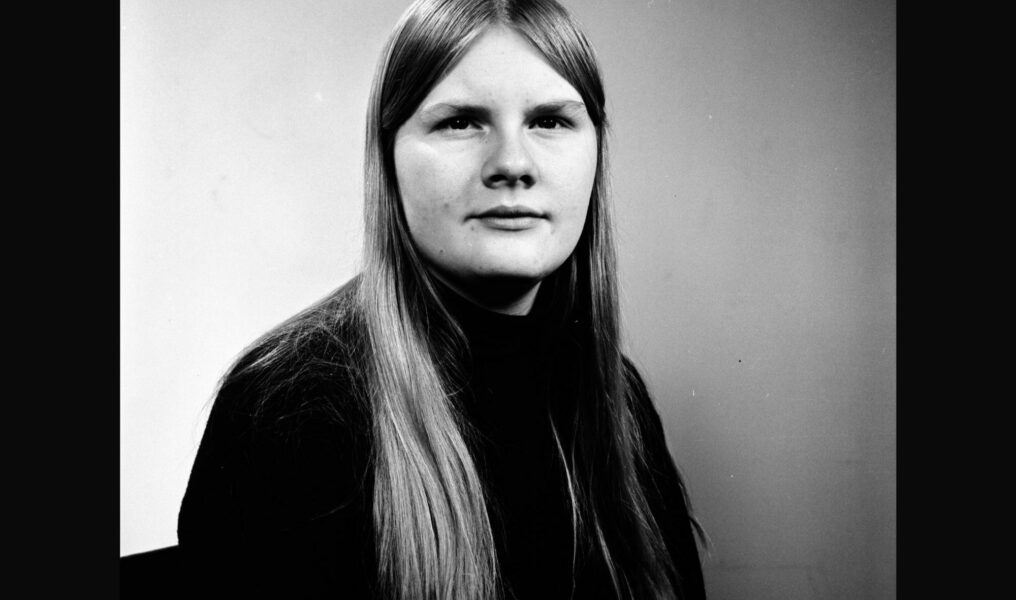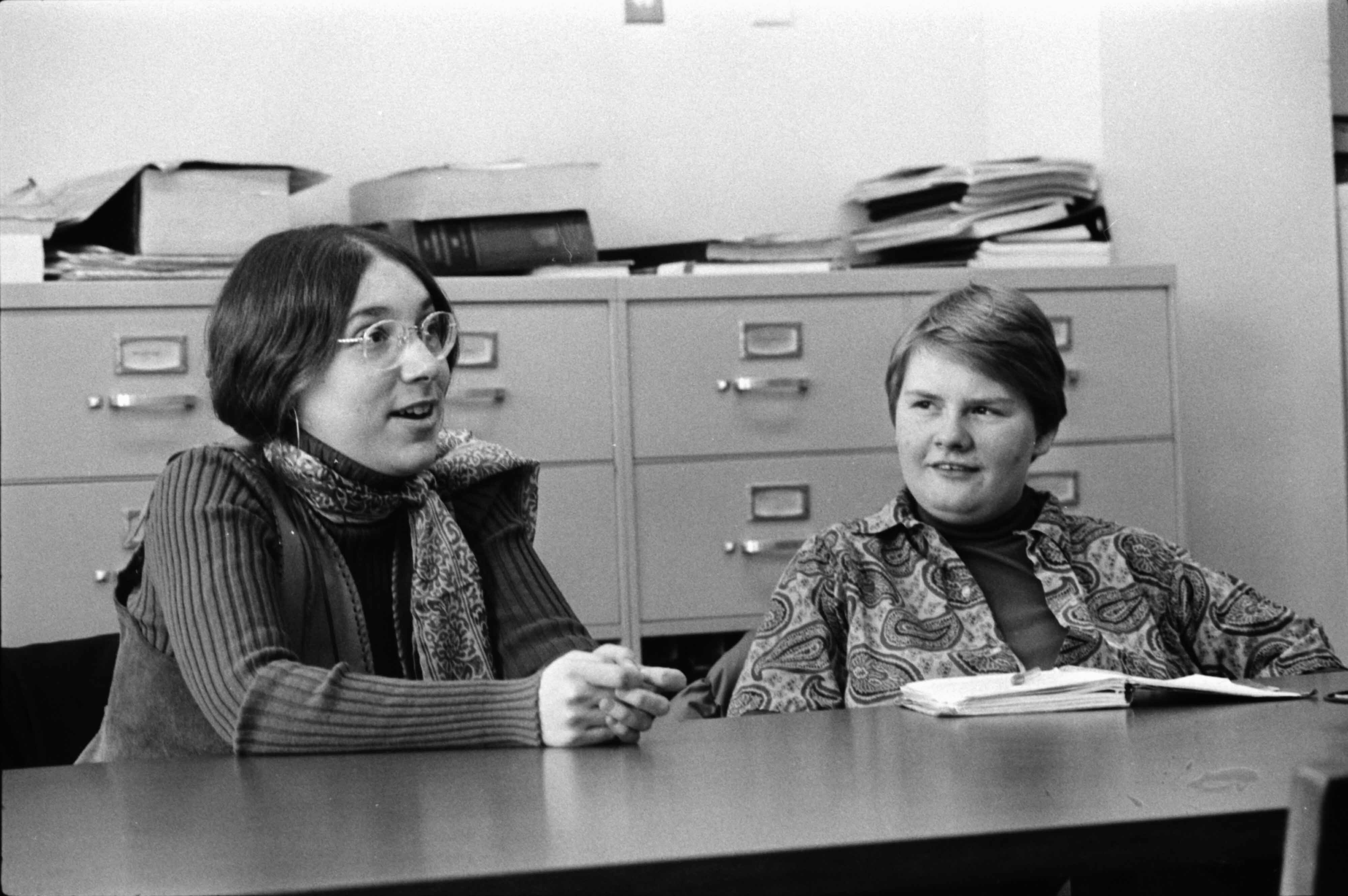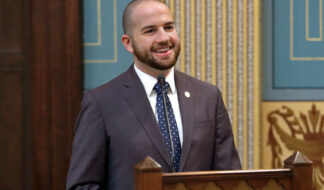Michigan Trailblazer Kathy Kozachenko, First Out Elected Official in U.S., to Be Honored with Statue in Ann Arbor
Statue to be unveiled during the city’s bicentennial celebration in 2024

Kathy Kozachenko blazed a trail for others to follow, including Harvey Milk, and became the first out gay person ever to be elected to public office when she won a seat on the Ann Arbor City Council in 1974 — a full three years before Milk would become a city supervisor in San Francisco and only five years post-Stonewall.
Now, the city of Ann Arbor is recognizing Kozachenko by erecting a statue in her honor.
"Kathy Kozachenko's election to the Ann Arbor City Council in 1974 as an out lesbian candidate is long overdue for recognition," said Tim Retzloff, an adjunct assistant professor at Michigan State University who specializes in queer history. "Ann Arbor, East Lansing and Detroit were on the vanguard of 1970s LGBTQ+ activism in so many ways."
Kozachenko was elected when she was just 21 and a student at University of Michigan and ran as a third-party candidate for the Human Rights Party. Like all good politicians, Kozachenko was a gifted speaker. In her acceptance speech, she laid her cards on the political table, remarking, "Ten years ago, or even three years ago, lesbianism would have meant automatic defeat. This year, we talked about rent control. We talked about the city's budget. We talked about police priorities, and we had a record of action to run on. Many people's attitudes about gayness are still far from healthy, but my campaign forced some people at least to reexamine their prejudices and stereotypes."
A year earlier, Kozachenko’s predecessor, Nancy Wechsler, a fellow Human Rights Party member, had come out after being elected and on the council for some time. This makes Wechsler the first openly lesbian public office holder in the country. But it was Kozachenko who was actually the first elected out lesbian.
Kozachenko served only one term and gave up politics in 1976.
"People have asked why I'm not still in politics," she told Pride Source’s D’Anne Witkowski in 2021. "I was really never in politics. I was a part of a social justice movement, and running for office and elections was one part of how we wanted to share our ideas and make change. I'm still very much a social justice activist even though I'm not someone who is into party politics, per se."
That’s not to say that Kozachenko dismisses her contribution to the queer rights movement.
"I think we've made enormous progress in opening the country's consciousness to the fact that there are many ways of living, there are many ways of loving, there are many ways of expressing who we are," she told Witkowski. "It's not 'Leave It to Beaver' or 'The Partridge Family.' Cookie-cutter families are not who everyone is in this country."
A true progressive, Kozachenko campaigned on an agenda that included such items as a fine of no more than $5 for possession of small amounts of marijuana. Another cause she was passionate about was placing a ceiling on the amount of profit a landlord could make from rental income.
Kozachenko opted not to run for a second term and pretty much disappeared from public life.
“As hard as we tried to make our organization representative of and inclusive of individuals beyond students — to be a voice for working people, people that were on welfare but trying to move beyond welfare, people of color — we weren’t really able to go beyond being a student organization,” Kozachenko said of the Human Rights Party for an NBC News story in 2020. “So, the viability of the organization as a vehicle for change, I could see that it wasn’t going to be long term, and I wanted to see where else I could be effective.”

Nearly 50 years since she was elected, Kozachenko prefers to look forward.
"We have so, so far to go in so many things," she told Witkowski, noting that the lack of affordable housing, income disparity and institutional racism are huge problems in the U.S.
"We've got to somehow communicate with each other so we see our commonality," she added. "And that doesn't mean giving people a pass when they say something offensive or inappropriate. It means having discussions with people in an attempt to communicate and be able to open people's hearts and minds."
Retzloff agreed.
"At the same time we celebrate this effort, we should remember that acts of commemoration can say as much about the present as the past," Retzloff said. "While local officials move forward in honoring the first openly LGBTQ+ person elected to public office in the U.S., let us also ask what this says about our movement's achievements, values, and priorities in 2024."
Jacob Gorski is an Ann Arbor District Library librarian. He interviewed Kozachenko for his podcast, Gayest Generation, last year.
“In my short interactions with Kathy, I was overwhelmed by her humbleness and humanity," Gorski said. “It is wonderful news to hear that she will be commemorated in this way.”
In the 2020 NBC News interview, Kozachenko reflected on her role in history and standing in the shadow of Milk, even though she predates him.
“Not a lot of people know about me,” Kozachenko said. “Harvey Milk was a very strong and vibrant gay activist. I was and am a social justice advocate, of which LGBTQ rights come in.”
Kozachenko’s statue is scheduled to be unveiled during the city’s bicentennial celebration in 2024.










